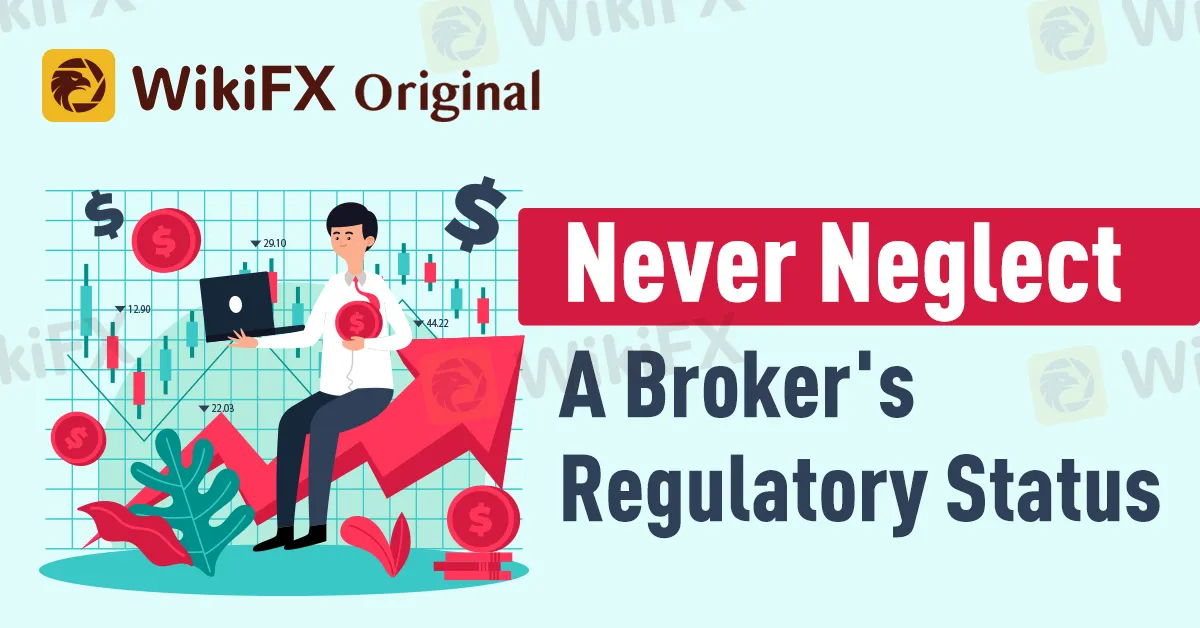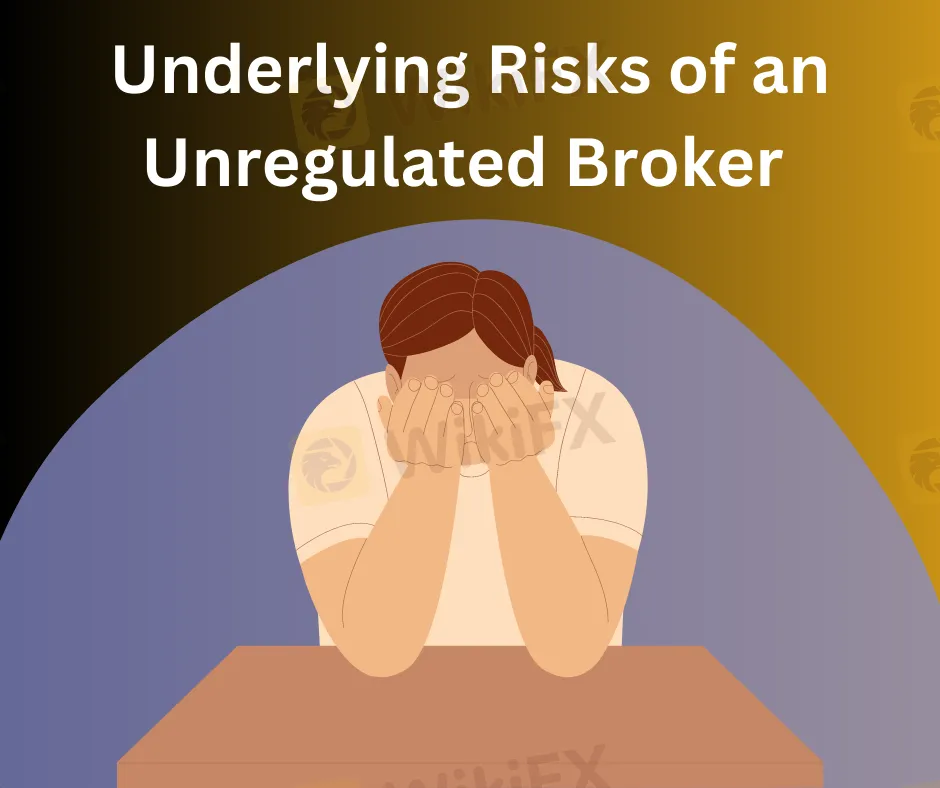简体中文
繁體中文
English
Pусский
日本語
ภาษาไทย
Tiếng Việt
Bahasa Indonesia
Español
हिन्दी
Filippiiniläinen
Français
Deutsch
Português
Türkçe
한국어
العربية
Never Neglect A Broker's Regulatory Status
Abstract:A regulated broker is subject to strict regulations and standards designed to protect traders and maintain market integrity, while an unregulated broker may pose greater risks to traders.

The regulatory status of a forex broker refers to the level of oversight and scrutiny that the broker is subject to by a regulatory authority. This regulatory authority can be a government agency or a self-regulatory organization that is responsible for ensuring that brokers comply with strict standards and regulations that are designed to protect traders and maintain market integrity.
The regulatory status of a forex broker is determined by the jurisdiction in which the broker operates. In the United States, for example, forex brokers must be registered with the Commodity Futures Trading Commission (CFTC) and become members of the National Futures Association (NFA). The CFTC and NFA are responsible for enforcing strict regulations and standards that brokers must adhere to in order to protect traders and maintain market integrity.
In Europe, forex brokers must be regulated by a national regulatory authority, such as the Financial Conduct Authority (FCA) in the UK or the Cyprus Securities and Exchange Commission (CySEC) in Cyprus. These regulatory authorities are responsible for enforcing strict regulations and standards that brokers must comply with in order to protect traders and maintain market integrity.
Regulated brokers are required to comply with various standards and regulations, including maintaining sufficient capital reserves, segregating client funds from the broker's own funds, and implementing robust security measures to safeguard client information and transactions. These regulations are designed to protect traders from fraudulent activities, misconduct, and other unethical practices that can result in financial losses.
On the other hand, unregulated brokers may not be subject to the same level of scrutiny and oversight, leaving traders at greater risk of fraudulent activities and other unethical practices. These brokers may also lack the necessary financial resources to handle large market fluctuations, resulting in significant losses for traders.

Lack of protection for traders' funds: An unregulated forex broker may not be required to maintain sufficient capital reserves or segregate clients' funds from their own. This lack of regulation can result in traders' funds being commingled with the broker's own funds, leaving traders vulnerable to financial losses if the broker experiences financial difficulties or goes bankrupt.
Higher risk of fraudulent activities: Unregulated forex brokers may engage in unethical or fraudulent practices, such as front running, stop hunting, or even running a Ponzi scheme. These practices can result in significant financial losses for traders.
No oversight or transparency: Regulated brokers are subject to strict oversight and scrutiny, which ensures transparency and accountability in their operations. However, unregulated brokers operate with no such oversight, leaving traders uncertain about the legitimacy of the broker's activities.
Lack of legal recourse: Traders who use unregulated forex brokers may not have legal recourse in the event of disputes or financial losses. Regulated brokers must adhere to strict regulatory standards, and traders can seek recourse through the regulatory authority or legal system if necessary.
Poor customer service: Unregulated brokers may lack the resources or incentive to provide quality customer service to their clients, which can lead to frustration and dissatisfaction for traders.
One of the main areas of focus for WikiFX is the regulatory status of forex brokers. The platform provides detailed information on the regulatory bodies that oversee forex brokers in different regions, including the United States, Europe, Asia, and Australia.

For each forex broker, WikiFX provides information on their regulatory status, including whether they are regulated or not, and which regulatory body they are registered with. The platform also provides information on the broker's license number, date of registration, and other relevant details.
In addition to this, WikiFX provides ratings and reviews from other traders who have used these brokers in the past. These ratings and reviews can help traders to get a better understanding of the broker's reliability, reputation, and customer service, which can be critical factors when choosing a forex broker.
Overall, WikiFX is an invaluable resource for traders who are looking for information about forex brokers and their regulatory status. The platform provides detailed and up-to-date information on thousands of forex brokers from around the world, which can help traders to make informed decisions and choose a broker that is safe, reliable, and trustworthy.

Disclaimer:
The views in this article only represent the author's personal views, and do not constitute investment advice on this platform. This platform does not guarantee the accuracy, completeness and timeliness of the information in the article, and will not be liable for any loss caused by the use of or reliance on the information in the article.
Read more

Justice Served: Illegal Investment Scheme Ends in RM28 Million Repayment
The Kuala Lumpur High Court has ruled that a Singaporean businessman, Chan Cheh Shin, must return RM28 million to 122 Malaysian investors after the court determined that his investment operations were conducted illegally.

RM900,000 Scammed: The Hidden Dangers of Online Investment Schemes
A 53-year-old factory manager from Malaysia has fallen victim to an online investment scam, losing over RM900,000 of her savings. This case underscores the growing threat of online scams preying on unsuspecting individuals.

Tokyo Police Arrest 4 for Unregistered FX Trading Scheme
Four men in Tokyo were arrested for running an unregistered FX trading operation, collecting over ¥1.6 billion from 1,500 investors.

Doo Group Expands Its Operations with CySEC License
Doo Financial, part of Doo Group, receives a CySEC license, allowing FX/CFD services in Europe. This strengthens its global presence and regulatory standards.
WikiFX Broker
Latest News
BSP Shuts Down Uno Forex Over Serious AML Violations
ACY Securities Expands Global Footprint with South Africa Acquisition
Why Even the Highly Educated Fall Victim to Investment Scams?
Warning Against Globalmarketsbull & Cryptclubmarket
Rupee gains against Euro
Tokyo Police Arrest 4 for Unregistered FX Trading Scheme
Axi Bids AUD 52M to Acquire Low-Cost Broker SelfWealth, Outbidding Competitor Bell Financial
Crypto Influencer's Body Found Months After Kidnapping
US Regulators Tighten Oversight on Bank Anti-Money Laundering Efforts
Doo Group Expands Its Operations with CySEC License
Currency Calculator


